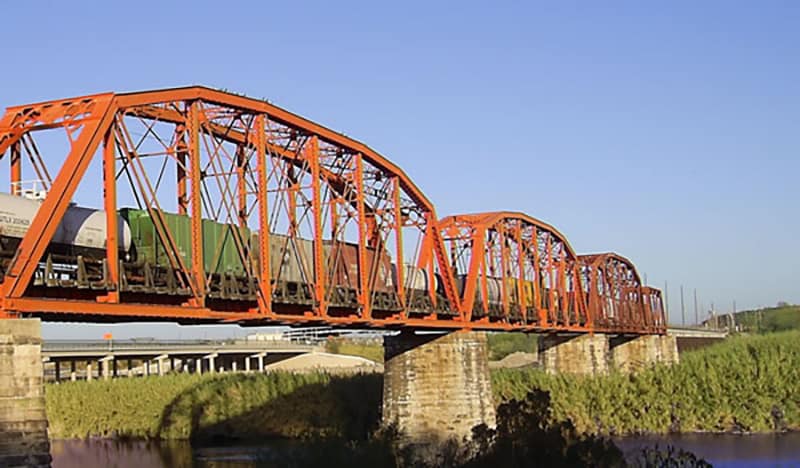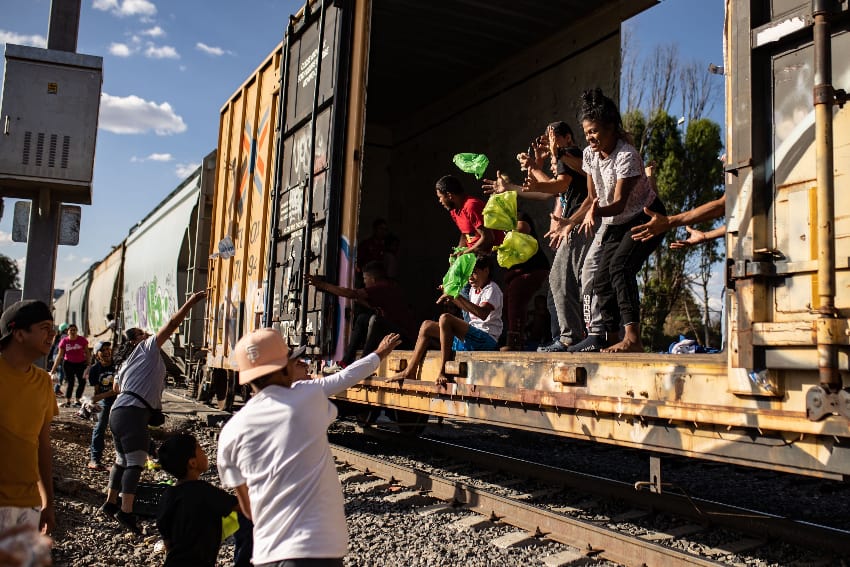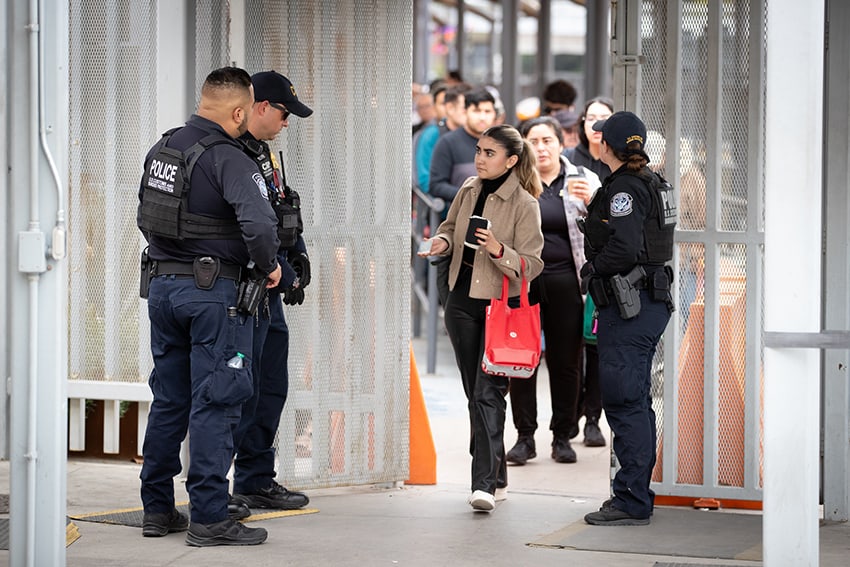United States authorities have suspended operations at two railway crossing bridges between Texas and Mexico in order to redeploy personnel to assist the detention of migrants.
U.S. Customs and Border Protection (CBP) said in a statement on Sunday that its Office of Field Operations would “temporarily suspend operations at the international railway crossing bridges in Eagle Pass and El Paso, Texas,” at 8 a.m. Monday “in order to redirect personnel to assist the U.S. Border Patrol with taking migrants into custody.”

The agency said it had observed “a recent resurgence of smuggling organizations moving migrants through Mexico via freight trains” and that it was “taking additional actions to surge personnel and address this concerning development, including in partnership with Mexican authorities.”
“CBP will continue to prioritize our border security mission as necessary in response to this evolving situation,” it said.
Migrants frequently board freight trains collectively known as “La Bestia” (The Beast) to expedite their journeys through Mexico to the northern border. Hundreds if not thousands of migrants have sustained serious injuries while riding freight trains in Mexico.
The decision to suspend operations at the rail crossings in Eagle Pass and El Paso comes three months after railroad operator Ferromex halted the operations of 60 freight trains that run on routes to northern Mexico after a string of accidents, including fatal ones, involving migrants riding the rails.

The El Paso Times reported that “the potential binational economic impact of the border railway closures was not immediately clear.”
Freight destined for Texas on trains could conceivably be put onto trucks, but it is still likely there will be some economic fallout from the rail crossing suspension, especially if it continues for a prolonged period.
The CBP said it was continuing to “adjust” its operational plans to “maximize enforcement efforts against those noncitizens who do not use lawful pathways or processes such as [the mobile app] CBP One [to enter the U.S.] and those without a legal basis to remain in the United States.”
“Over the past several weeks, CBP has made a number of operational adjustments in order to maximize our ability to respond, process, and enforce consequences,” the agency added.

“In Eagle Pass, vehicular processing remains suspended at Eagle Pass International Bridge 1. In San Diego, California, San Ysidro’s Pedestrian West operations remain suspended. In Lukeville, Arizona, the Lukeville Port of Entry remains closed.”
CBP encountered a record high of almost 2.5 million migrants at the U.S.-Mexico border in fiscal year 2023, which ended in September.
NewsNation reported Monday that it was informed by a CBP source that the agency had about 167,000 encounters with migrants in the first 17 days of December, a 28% increase compared to the first 17 days of November.
Most migrants who attempt to cross illegally into the United States via its southern border are nationals of Central American, South American and Caribbean countries, but growing numbers of people from further afield, including Asian and African nations, have also recently sought to enter the U.S. between official points of entry after making perilous journeys through Mexico.
In October, President López Obrador met in Chiapas with officials from 10 other Western Hemisphere countries to discuss migration.
The officials agreed to draw up “an action plan for development … to attend to the structural causes of irregular migration in the region,” while López Obrador and U.S. President Joe Biden subsequently “discussed their joint commitment to address the root causes of migration across the Western Hemisphere and to expand lawful pathways for migration,” according to a White House statement issued after the two leaders met in San Francisco last month.
Mexico News Daily
